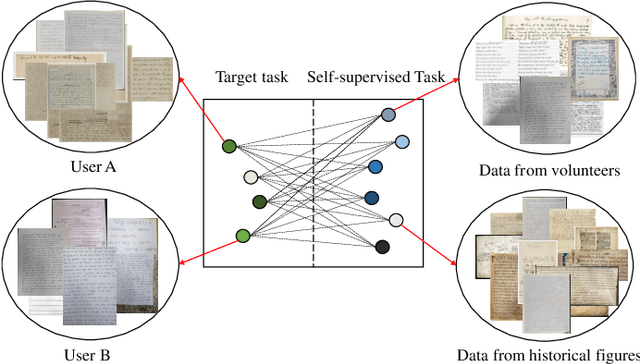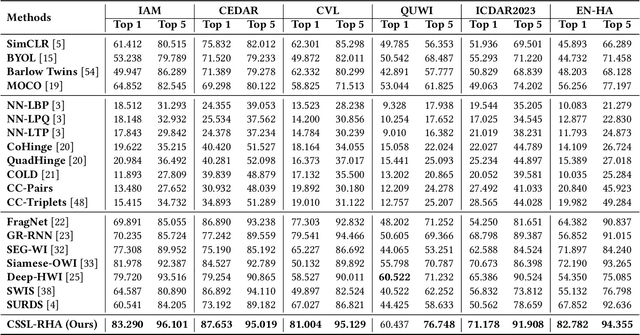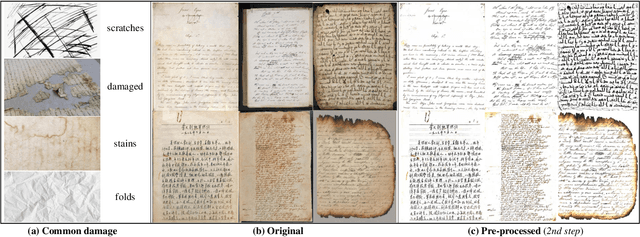CSSL-RHA: Contrastive Self-Supervised Learning for Robust Handwriting Authentication
Paper and Code
Jul 18, 2023



Handwriting authentication is a valuable tool used in various fields, such as fraud prevention and cultural heritage protection. However, it remains a challenging task due to the complex features, severe damage, and lack of supervision. In this paper, we propose a novel Contrastive Self-Supervised Learning framework for Robust Handwriting Authentication (CSSL-RHA) to address these issues. It can dynamically learn complex yet important features and accurately predict writer identities. Specifically, to remove the negative effects of imperfections and redundancy, we design an information-theoretic filter for pre-processing and propose a novel adaptive matching scheme to represent images as patches of local regions dominated by more important features. Through online optimization at inference time, the most informative patch embeddings are identified as the "most important" elements. Furthermore, we employ contrastive self-supervised training with a momentum-based paradigm to learn more general statistical structures of handwritten data without supervision. We conduct extensive experiments on five benchmark datasets and our manually annotated dataset EN-HA, which demonstrate the superiority of our CSSL-RHA compared to baselines. Additionally, we show that our proposed model can still effectively achieve authentication even under abnormal circumstances, such as data falsification and corruption.
 Add to Chrome
Add to Chrome Add to Firefox
Add to Firefox Add to Edge
Add to Edge